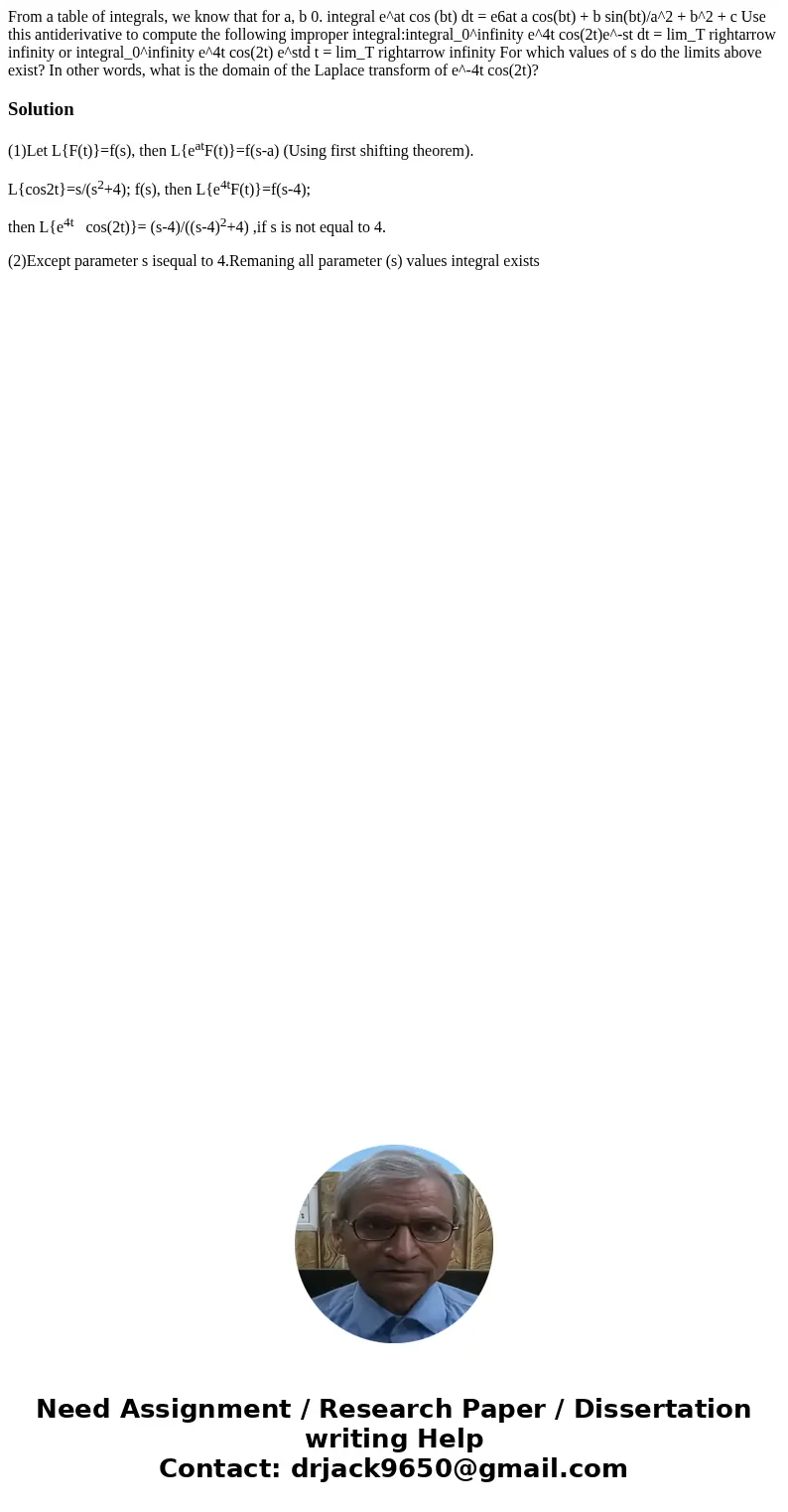From a table of integrals we know that for a b 0 integral ea
From a table of integrals, we know that for a, b 0. integral e^at cos (bt) dt = e6at a cos(bt) + b sin(bt)/a^2 + b^2 + c Use this antiderivative to compute the following improper integral:integral_0^infinity e^4t cos(2t)e^-st dt = lim_T rightarrow infinity or integral_0^infinity e^4t cos(2t) e^std t = lim_T rightarrow infinity For which values of s do the limits above exist? In other words, what is the domain of the Laplace transform of e^-4t cos(2t)? 
Solution
(1)Let L{F(t)}=f(s), then L{eatF(t)}=f(s-a) (Using first shifting theorem).
L{cos2t}=s/(s2+4); f(s), then L{e4tF(t)}=f(s-4);
then L{e4t cos(2t)}= (s-4)/((s-4)2+4) ,if s is not equal to 4.
(2)Except parameter s isequal to 4.Remaning all parameter (s) values integral exists

 Homework Sourse
Homework Sourse